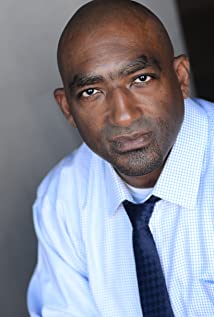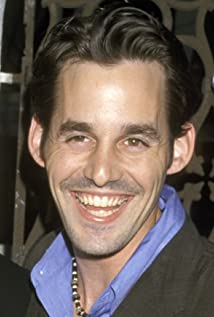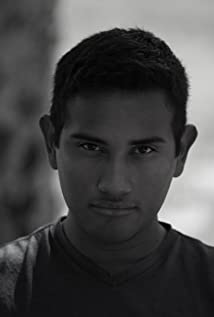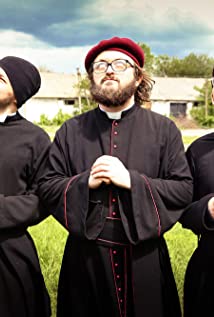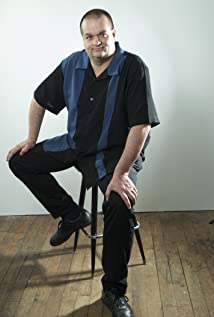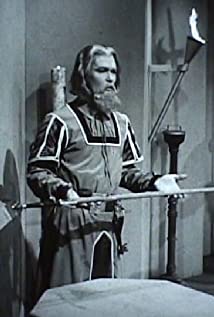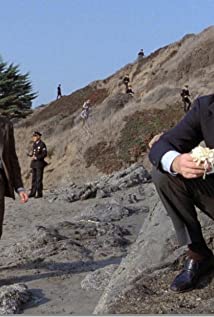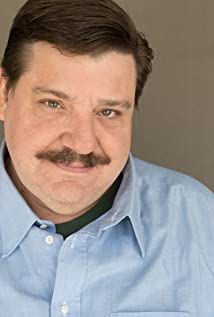Marcel Dalio was born on November 23, 1899 in Paris, France, France, is Actor, Writer, Soundtrack. Sunday, November the 20th is the anniversary of Marcel Dalio's death in 1983. It was the end of a serendipitous life. You know him. He was a citizen of the world. Born Israel Moshe Blauschild, in Paris, in 1900, he became a much sought-after character actor. His lovely animated face with its great expressive eyes became familiar across Europe. He appeared in Jean Renoir's idiosyncratic "Rules of the Game" (La règle du jeu (1939)) and "Grand Illusion" (La Grande Illusion (1937)), arguably the greatest of all films. True to his Frenchman's heart, he married the very young, breathtaking beauty Madeleine Lebeau. He worked with von Stroheim and Pierre Chenal. He had it all.But then the Germans crushed Poland, swept across Belgium and pressed on toward Paris. He waited until the last possible moment and finally, with the sound of artillery clearly audible, with Madeleine, fled in a borrowed car to Orleans and then, in a freight train, to Bordeaux and finally to Portugal. In Lisbon, they bribed a crooked immigration official and were surreptitiously given two visas for Chile. But on arriving in Mexico City, it was discovered the visas were rank forgeries. Facing deportation, Marcel and Madeleine found themselves making application for political asylum with virtually every country in the western hemisphere. Weeks passed until Canada finally issued them temporary visas, and they left for Montreal.Meanwhile, France had fallen and, in the process of subjugating the country, the Germans had found some publicity stills of Dalio. A series of posters were produced and were then displayed throughout the city with the caption 'a typical Jew' so that citizens could more easily report anyone suspected of unrepentant Jewishness. The madness continued. Entrée des artistes (1938), a popular film, was ordered re-edited so that Dalio's scenes could be deleted and re-shot with another, non-Jewish, actor.After a short time, friends in the film industry arranged for them to arrive in Hollywood. Nearly broke, Marcel was immediately put to work in a string of largely forgettable films. Madeleine, a budding actress in her own right, was ironically cast in Hold Back the Dawn (1941), a vehicle for Charles Boyer with a plot driven by the efforts of an émigré (Boyer) trying desperately to cross into the United States from Mexico. But the real irony was waiting at Warner Brothers.In early 1942, Jack L. Warner was driving production of a film based on a one act play, 'Everybody Comes to Rick's' but had no screenplay. What he had was a mishmash of treatments loosely based on the play and two previous movies. But he had a projected release date and a commitment to his distributors to have a movie for that time slot and little else. Warner Brothers started to wing it.Shooting started without a screenplay and little plot. Principal players were cast and a director hired but casting calls for supporting roles and bit players continued, and sometime in the early spring Marcel Dalio and Madeleine Lebeau were cast as, respectively, a croupier and a romantic entanglement for the male lead. Veteran screen-writers were hired to produce a running screenplay, sometimes delivering pages of dialogue one day, for scenes to be shot the following day. No one knew exactly where the plot would go or how the story would turn out. No one was sure of the ending. And, of course, they produced a classic, perhaps the finest, American movie.They produced a screenplay of multiple genres, rich with characterizations, perfectly in tune with the unfolding events in Europe and loaded with talent from top to bottom. Oh, and they changed the title to Chuyen Tinh The Chien (1942).It is so well known, that many lines of long-memorized dialogue have passed into the slang idiom. 'We'll always have Paris', 'I was misinformed', 'Here's looking at you, kid', ' I am shocked! Shocked! To find that there's gambling going on in here!', 'Louis, I think this is the beginning of a beautiful friendship', 'Oh he's just like any other man, only more so', 'I don't mind a parasite. I object to a cut-rate one', 'Round up the usual suspects', and, of course, the iconic 'Play it, Sam,' often misquoted as 'Play it again, Sam,' the title of the Woody Allen movie.Madeleine Lebeau plays Yvonne, the jilted lover of Humphrey Bogart, who is seen drowning her sorrows at the bar early in the film and who later, to get back at Rick and looking for solace takes up with a German officer finding only self-hatred. She is luminous.And when Claude Rains delivers the signature line, 'I'm shocked! Shocked! To find that there's gambling going on in here!' the croupier, Emil, played by Marcel Dalio, approaches from the roulette table and says simply, 'Your winnings, sir.' It is a delicious moment ripe with scripted irony, one among many in this film, but one made all the more so, knowing where Dalio came from and what he and his wife had endured to arrive at that line.Alas, they separated and divorced the next year, both going on to long successful careers. Dalio never remarried.Late in his career, when Mike Nichols was looking for a vaguely familiar face to deliver a long and worldly, near-monologue in Catch-22 (1970), he turned to Dalio. Faced with a hopelessly idealistic young American pilot, Dalio in tight close-up, delivers a discourse on practical people faced with impractical circumstances, of the virtues of expedience in the face of amorality. Using his wonderful plastic features, now beginning to sag, in a voice full of melancholy, the old man reassures the young man that regardless of what 'grand themes' may be afoot in the world, in the end, little matters but survival.
Marcel Dalio is a member of Actor
Does Marcel Dalio Dead or Alive?
As per our current Database, Marcel Dalio has been died on 18 November 1983(1983-11-18) (aged 83)\nParis, France.
🎂 Marcel Dalio - Age, Bio, Faces and Birthday
When Marcel Dalio die, Marcel Dalio was 83 years old.
| Popular As |
Marcel Dalio |
| Occupation |
Actor |
| Age |
83 years old |
| Zodiac Sign |
Leo |
| Born |
November 23, 1899 ( Paris, France, France) |
| Birthday |
November 23 |
| Town/City |
Paris, France, France |
| Nationality |
France |
🌙 Zodiac
Marcel Dalio’s zodiac sign is Leo. According to astrologers, people born under the sign of Leo are natural born leaders. They are dramatic, creative, self-confident, dominant and extremely difficult to resist, able to achieve anything they want to in any area of life they commit to. There is a specific strength to a Leo and their "king of the jungle" status. Leo often has many friends for they are generous and loyal. Self-confident and attractive, this is a Sun sign capable of uniting different groups of people and leading them as one towards a shared cause, and their healthy sense of humor makes collaboration with other people even easier.
🌙 Chinese Zodiac Signs
Marcel Dalio was born in the Year of the Pig. Those born under the Chinese Zodiac sign of the Pig are extremely nice, good-mannered and tasteful. They’re perfectionists who enjoy finer things but are not perceived as snobs. They enjoy helping others and are good companions until someone close crosses them, then look out! They’re intelligent, always seeking more knowledge, and exclusive. Compatible with Rabbit or Goat.
Biography/Timeline
1920
Dalio was born Israel Moshe Blauschild in Paris to Romanian-Jewish immigrant parents. He trained at the Paris Conservatoire and performed in revues from 1920. Dalio appeared in stage plays from the 1920s and acted in French films in the '30s. His first big film success was in Julien Duvivier's Pépé le Moko (1937). He followed them with two films for Jean Renoir, La Grande Illusion (1937) and The Rules of the Game (La Règle du jeu, 1939).
1939
After divorcing his first wife, Jany Holt, he married the young Actress Madeleine Lebeau in 1939.
1940
In June 1940, Dalio and Lebeau left Paris ahead of the invading German army and reached Lisbon. They are presumed to have received transit visas from Aristides de Sousa Mendes, allowing them to enter Spain and journey on to Portugal. It took them two months to get visas to Chile. However, when their ship, the S.S. Quanza, stopped in Mexico, they were stranded (along with around 200 other passengers) when the Chilean visas they had purchased turned out to be forgeries. Eventually they were able to get temporary Canadian passports and entered the United States. Meanwhile, the advancing German Nazi army in occupied France used posters of his face as a representative of "a typical Jew". All other members of Dalio's family died in Nazi concentration camps.
1941
In Hollywood, although Dalio was never quite able to rescale the heights of prominence that he had enjoyed in France, he appeared in 19 American films during the Second World War, in stereotypical roles as a Frenchman. Dalio's first film in the United States was the Fred MacMurray comedy One Night in Lisbon (1941) in which he portrayed a hotel concierge. Around the same time, he appeared in the Edward G. Robinson film Unholy Nights and the Gene Tierney film The Shanghai Gesture (also 1941). He remained busy, appearing in Flight Lieutenant (1942) starring Pat O'Brien and Glenn Ford. Dalio next portrayed a Frenchman, Focquet, in the film The Pied Piper. In this film, Monty Woolley portrayed an Englishman trying to get out of France with an ever-increasing number of children ahead of the German invasion. Dalio then appeared among the star-studded cast in Tales of Manhattan (both 1942).
1942
In the uncredited role of Emil the croupier in Casablanca (also 1942), he appeared in the scene when Captain Renault closes down Rick's Cafe American using the pretext, "I am shocked, shocked to find that gambling is going on in here!", Emil approaches him and hands him his usual bribe money saying, "Your winnings sir.", while Rick darts Emile a flabbergasted look. His wife Madeleine Lebeau was also in the film, playing Yvonne, Rick's intermittent girlfriend. On 22 June, while Lebeau was filming her scenes with Hans Twardowski as the German officer, Dalio filed for divorce in Los Angeles on the grounds of desertion.
1943
He was cast in some larger roles, for Example in the war dramas Tonight We Raid Calais and Paris After Dark (both 1943), in the latter his ex-wife Lebeau also appeared. Dalio played a French policeman in The Song of Bernadette (also 1943). His penultimate wartime role in an American film was in the adaptation of To Have and Have Not (1944) reuniting him with Humphrey Bogart.
1945
When the war in Europe ended in May 1945, Dalio returned to France to continue his movie career. His first appearance that year was in Her Final Role (Son dernier rôle, 1946). He appeared in ten more movies in France and one in England through the late 1940s. He played Captain Nikarescu in Black Jack (1950).
1950
Dalio appeared in four American movies in the mid-1950s. Gentlemen Prefer Blondes starring Jane Russell and Marilyn Monroe and Flight to Tangier (both 1953) starring Joan Fontaine, Lucky Me starring Doris Day and Sabrina (both 1954) starring Bogart and Audrey Hepburn. In Sabrina, the bearded Dalio played one of Hepburn's fellow cooking students in Paris. He then briefly returned to France.
1954
Dalio also appeared in numerous television shows both in the United States (between 1954 and 1963) and in France (1968 to 1981). These include guest appearances in Alfred Hitchcock Presents, Peter Gunn, 77 Sunset Strip, Maverick, Alcoa Presents: One Step Beyond and Ben Casey.
1955
Dalio portrayed the Claude Rains character, Captain Renault, in the short-lived television series Casablanca (1955). Dalio had the role of a French sergeant in the war drama Jump into Hell (also 1955) about the French defeat at the Battle of Dien Bien Phu in Vietnam. Dalio appeared in the musical comedy Ten Thousand Bedrooms starring Dean Martin, with Paul Henreid in the supporting cast. He also appeared as a French priest in a war movie, again about the French involvement in Vietnam, called China Gate which features the acting of Nat King Cole. Finally that year, Dalio played Zizi in The Sun Also Rises (all 1957) his third movie based on an Ernest Hemingway novel, this time starring Tyrone Power and Ava Gardner. In the next four years, he went on to appear in Lafayette Escadrille, The Perfect Furlough (both 1958) starring Tony Curtis, The Man Who Understood Women starring Henry Fonda, Pillow Talk (both 1959) starring Rock Hudson and Doris Day, Can-Can (1960) starring Frank Sinatra and The Devil at 4 O'Clock (1961) starring Sinatra and Spencer Tracy.
1963
After making more movies in France, Dalio received a major supporting role in the mystery The List of Adrian Messenger (1963), set entirely in England but filmed primarily in Hollywood. Two of Dalio's previous co-stars, Tony Curtis and Frank Sinatra, had cameos in the film. This was followed with the part of Father Cluzeot in the John Wayne movie, Donovan's Reef (also 1963). After appearing again with Tony Curtis in Wild and Wonderful (1964), Dalio returned to France. He continued making movies for Hollywood, but he also appeared in many French productions.
1965
Some later movies of Dalio's include Lady L (1965) starring Sophia Loren and Paul Newman, How to Steal a Million (1966) starring Audrey Hepburn and Peter O'Toole and How Sweet It Is! (1968) starring Debbie Reynolds and James Garner. Dalio played the "dirty" old Italian in Catch-22 and also appeared in The Great White Hope (both 1970) with James Earl Jones. After this, he did movies almost entirely in France, the best known of them being The Mad Adventures of Rabbi Jacob (1973) and La Bête (1975) directed by Walerian Borowczyk. His last appearance was in a TV movie portraying Lord Exeter in Les Longuelune (1982).
1981
Dalio married Hollywood based French Journalist Madeleine [Alena] Prime in Los Angeles, in 1981.
1983
Dalio, who appeared in almost 150 movies, died in Paris on 18 November 1983 at the age of 83. He is buried in Cimetière parisien de Bagneux in Hauts de Seine, France.
Marcel Dalio trend










